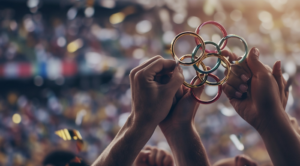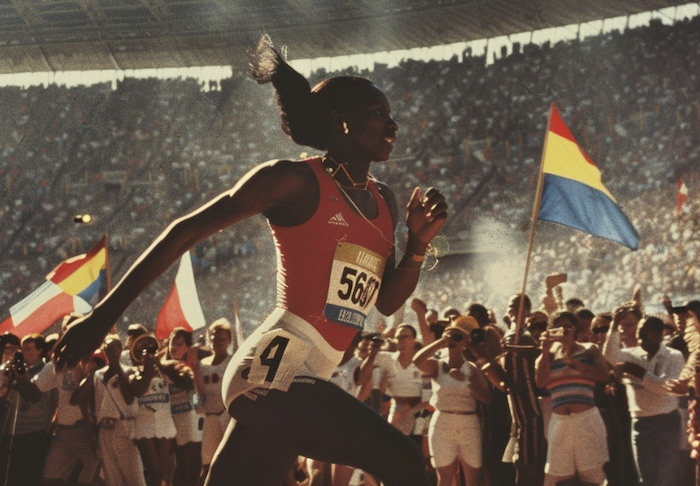
More than just being associated with a history of mighty victories, the Olympic Games have changed the cities they occur amazingly. Education, communication, architectural facilities, and many other aspects of people’s lives originated due to Olympic consequences, which formed cities’ features for years. However, beyond the symbolism and the colors of these cities, unseen and permanent changes go on even after the successful hosting of the event, and the flame is put off.
Economic Impact
It enhances wealth as the Olympics can deliver an instantaneous brilliant economic stimulant. For instance, games such as the 2012 London Games generated about $14,2 billion in investments that improved the infrastructure and produced employment opportunities. Following the event, millions visited the city as tourists and invested in businesses and services industries.
Besides increasing tourism and infrastructure, the Olympics inevitably affect many other fields, such as sports betting. With online casino real money offers, fans receive an actual chance to interact with the Games. With options to bet on everything from athletics to swimming, these platforms allow sports enthusiasts to turn their knowledge into real winnings.
Long-term benefits also accrue as an advantage in the remaining output period or as a legacy. Sydney and Athens experienced their struggling economy start growing after the 2000 and 2004 Games, respectively, due to transport and sports facilities’ improvements in the region’s financial fortunes.
Another constructive aspect of Olympic coverage for fans and bettors is the presence of fan pages that are constantly flowing and timely on social media. To learn the latest odds, news, and other crucial information on various competitions, the users must enter Melbet and dedicated sports betting pages. This availability of frequent updates helps make one-on-one betting more engaging and assists the participants in making frequent decisions.
Urban Development
The most evident physical effects of the Olympics are changes in the external and internal environment of the host city. Preparing for the event demands large-scale infrastructure projects and urban improvements, which remain beneficial for years:
- Cities are pressured to improve their mass transit for visitors; for instance, Beijing constructed new subway lines for the 2008 events.
- New integrated facilities for commercial and residential use are constructed, like Vancouver’s Olympic Village in 2010, to be sold later as residential enclaves.
- After the Games, large buildings like stadiums and other sporting arenas, such as Queen Elizabeth Olympic Park in London, are used in various ways.
Such enhancements guarantee that the city garners benefits even after the athletes have all gone.

Environmental Initiatives
Hosting the Olympics has catalyzed change, forcing host cities to embrace different environmentally friendly strategies. The latter has been done in the best interest of the Olympics, as it is all about games. These strategies aim to unlock the long-term sustainability of cities and the contexts within which they are located.
Green Venues
Almost every Olympic host has built green Olympics to avoid high-energy usage and enhance various impacts left behind. For example, 25% of the materials used in constructing London’s 2012 Olympic Stadium infrastructure were recycled, which makes the whole structure a reference to green sports architecture in the future. In addition, the Tokyo Games save energy from renewables or renewable energy sources.
The energy used in the games was Solar and wind energy. These attempts show that athletes can exemplify the characteristics of organized large-scale sporting activities while promoting sustainability issues. The first way is that athletes play an essential part in creating a sustainable future since people follow the examples set by the stars.
Legacy Programs
Apart from facilities, it has also produced several initiatives to promote the principles of environmentally friendly living. For instance, the Sydney 2000 Olympics formulated campaigns for waste management and energy management, which have been implemented in the city for the long term. Rio 2016 discussed the reconversion of towns, with projects like cleaning the polluted Guanabara Bay undertaken.
Such programs occasionally encompass concerns beyond environmental conservation, such as clean transport and green city plans. By maintaining these improvements in the long term, host cities eliminate negative impacts on the world and improve people’s quality of life with a plus for them, thus laying a significant impact that changes the world for the better.
Social Changes
The Olympics have long-term social effects in that they always foster national pride and togetherness in the host cities. As effective mechanisms of the Games, various programs and developments can strengthen the communities. Fundamental social changes include:
- Increased volunteerism, as seen in the 2012 London Olympics, where over 70,000 volunteers participated.
- Enhanced public health initiatives, such as Rio’s efforts to improve fitness and promote active lifestyles.
- Greater accessibility, with cities like Tokyo focusing on creating more inclusive spaces for individuals with disabilities.
These transformations often extend beyond the Games, becoming a permanent part of the city’s social fabric.
Cultural Influence
The events provide cities with an excellent means of presenting a particular culture on the world stage. For example, the 2008 Beijing Olympics showcased the country’s art, history, and culture, fascinating billions of viewers. Likewise, the 2020 Tokyo Games showcased Japan’s advanced technologies, entrenched in tradition.
Cultural diplomacy is not only showcased at the beginning and end of a sports event. Cities also engage in long-term cultural interactions with visitors and athletes worldwide.
Final Thoughts
The Olympics is a reusable resource that brings change and is responsible for changing the economy, society, environment, and culture in innumerable ways. We are not just talking about the 16 days of the Games but about new changes that should happen. It will take future generations to fully appreciate this sleeper transformation long after most of the country’s medals have been produced.

